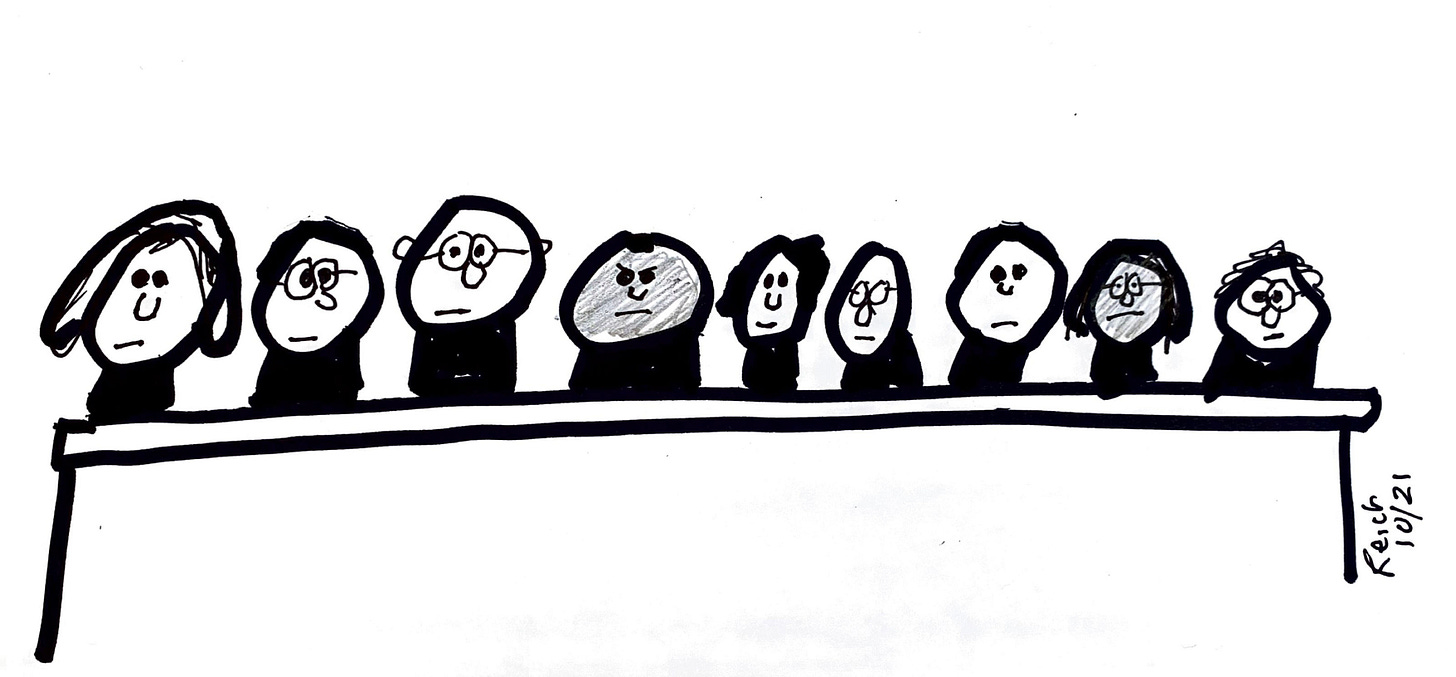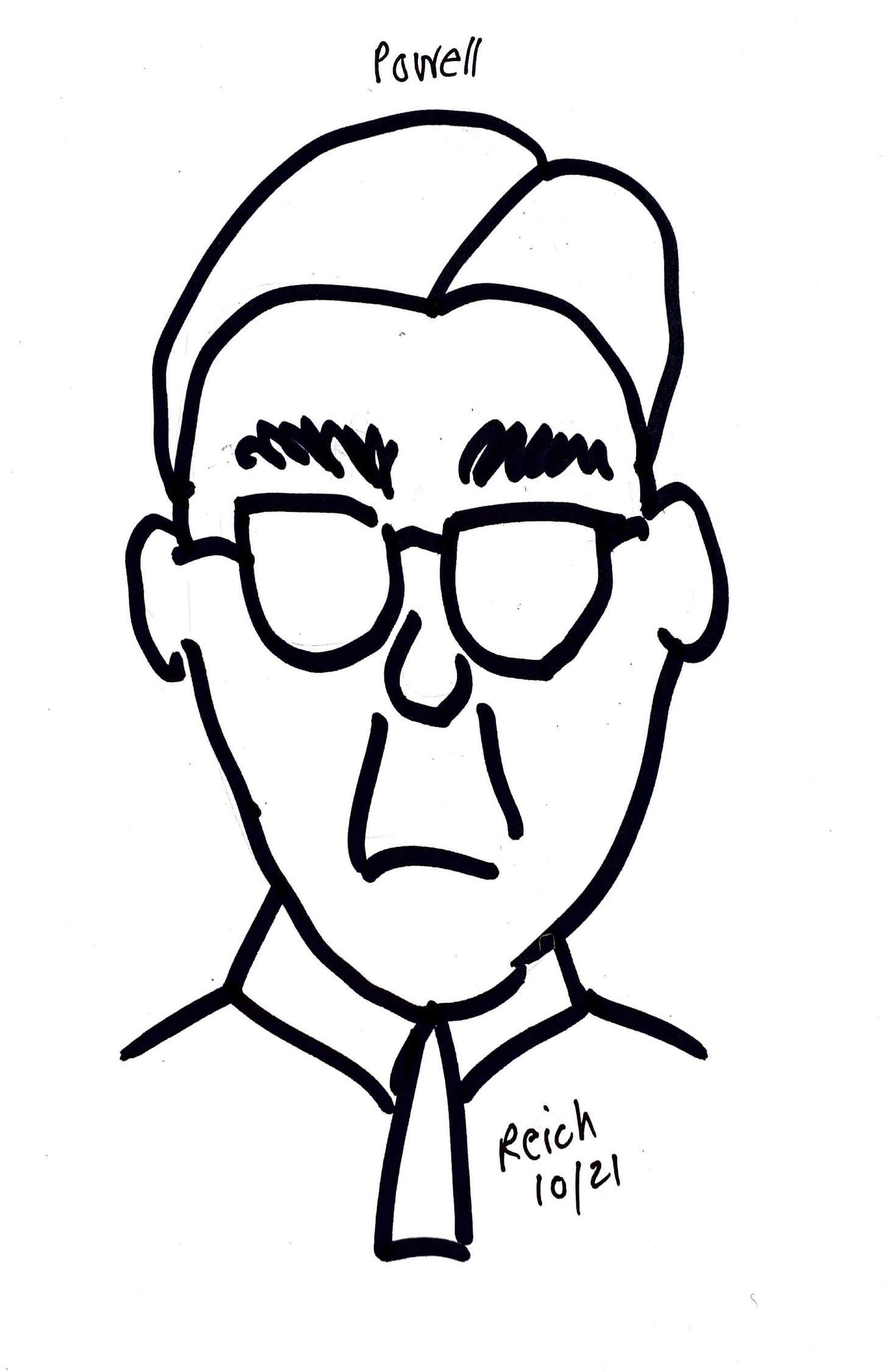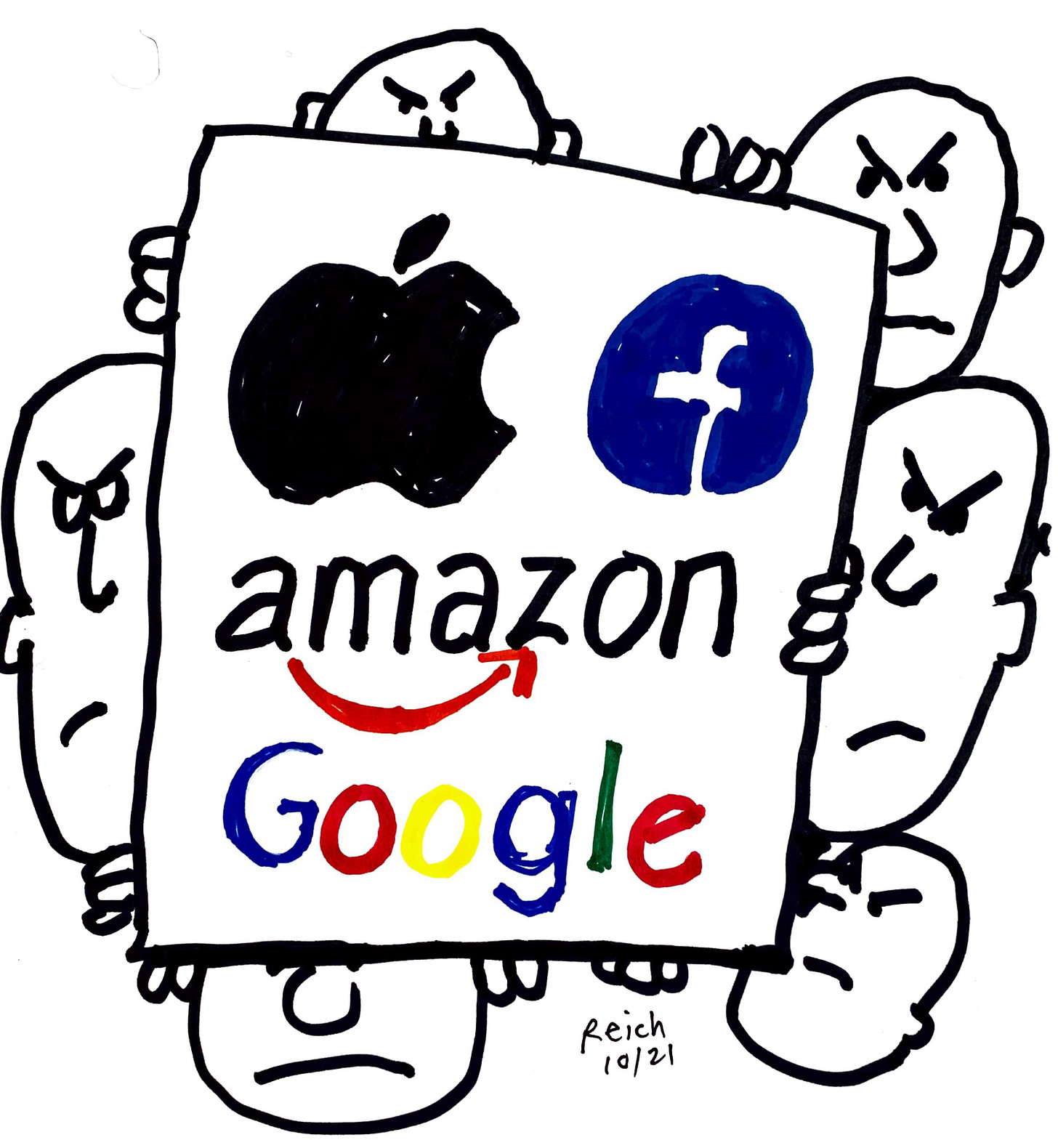The three biggest and least accountable power centers in America
The Supreme Court, the Fed, and Big Tech increasingly shape our lives but are less and less answerable to us
Every morning this week I’ve opened up the news and read stories about the Supreme Court (whose term began Monday), the Fed (and whether it will start responding to inflation by raising interest rates), and Facebook (which a whistle-blower claimed intentionally seeks to enrage and divide Americans in order to generate engagement and ad revenue).
The common thread is the growing influence of these three power centers over our lives, even as they’re becoming less accountable to us. As such, they present a fundamental challenge to democracy.
1. Start with the current Supreme Court. What’s the underlying issue?
Don’t for a moment believe the Supreme Court bases its decisions on neutral, objective criteria. I’ve argued before it and seen up close that justices have particular (and differing) ideas about what’s good for the country. So it matters who they are and how they got there.
A majority of the current nine justices – all appointed for life -- were put there by presidents who lost the popular vote (George W. and Trump); three by a president who instigated a coup.
Yet they are about to revolutionize American life in ways most Americans don’t want. This new court, whose term began this week, seems ready to overrule Roe v. Wade, the 1973 ruling that anchored reproductive rights in the 14th Amendment; declare a 108-year-old New York law against carrying firearms unconstitutional; and strip federal agencies such as the Environmental Protection Agency of the power to regulate private businesses. And much more.
Only 40 percent of the public now approves of the Supreme Court’s performance, a new low. If the justices rule in ways anticipated, that number will drop further. If so, expect renewed efforts to expand the court’s size and limit the terms of its members.
2. What about the Fed?
Some of you may wonder what the heck the Fed even does. Behind the current stories about whether it should act to tame inflation is the reality that its power to set short-term interest rates and regulate the financial sector is virtually unchecked. And here, too, there are no neutral, objective criteria. Some believe the Fed’s first priority should be fighting inflation. Others believe it should be full employment. So like the Supreme Court, it matters who runs it.
Presidents appoint Fed chairs for 4-year terms but tend to stick with them longer for fear of rattling Wall Street, which wants stability and fat profits. (Alan Greenspan, a Reagan appointee, lasted almost 20 years, surviving two Bushes and Bill Clinton, who didn’t dare remove him).
The term of Jerome Powell, the current Fed chair who was appointed by Donald Trump, is up in February. Biden will probably renominate him to appease the Street (although it’s not a sure thing). Powell has kept interest rates near zero, which is appropriate for an economy still suffering the ravages of the pandemic. Along the way, he has bailed out America’s biggest corporations by taking their junk debt (which they had used to buy back their own stock, driving up stock prices largely to the benefit of their CEOs and major investors).
Powell has also allowed the Street to resume several old risky practices (prompting Massachusetts Democratic senator Elizabeth Warren to tell him at a recent hearing that “renominating you means gambling that, for the next five years, a Republican majority at the Federal Reserve, with a Republican chair who has regularly voted to deregulate Wall Street, won’t drive this economy over a financial cliff again.”)
3. Finally, what’s behind the current controversy over Facebook?
It and three other high-tech behemoths (Amazon, Google, and Apple) are now taking on roles that once belonged to governments — from cybersecurity to exploring outer space — yet they, too, are unaccountable. Their decisions about which demagogues are allowed to communicate with the public and what lies they’re allowed to spew have profound consequences for whether democracy or authoritarianism prevails. (In January, Mark Zuckerberg apparently deferred to Nick Clegg, former British deputy prime minister, now vice president of Facebook, on whether to allow Trump back on the platform.)
Worst of all, they’re sowing hate. As Frances Haugen, a former data scientist at Facebook, revealed this week, Facebook’s algorithm is designed to choose content that will make users angry, because anger generates the most engagement — and user engagement turns into ad dollars. (The same is likely true of the algorithms used by Google, Amazon, and Apple.) Such anger has been ricocheting through our society, generating resentment and division.
Yet these firms have so much power that the government has no idea how to control them. (How many times do you think Facebook executives testified before Congress in the last four years? Answer: 30. How many laws has Congress enacted to constrain Facebook during that time? Answer: zero.)
Nor are they accountable to the market. (They now make the market.) They’re not even accountable to themselves. (Facebook’s Oversight Board has become a bad joke.)
These three power centers — the Supreme Court, the Fed, and the four biggest high-tech firms — have huge and increasing effects on our lives, yet they are less and less answerable to us.
Beware. Democracy depends on accountability. Accountability provides checks on unbridled power. If abuses of power go unchallenged, those who wield it will only consolidate their power further. It's a vicious cycle that erodes faith in democracy itself.
What do you think?




I continue to read critiques of US institutions which correctly point to the rot of (pick your choice) US institutions. Each critique warns that the US is on the precipice of losing our democracy. Senator Durbin made the point yesterday that the US came within a half step of a Constitutional crisis in the waning days of the Trump administration. No...we are no longer a democracy. Other than lower courts and the military leadership, every institution has been gutted, corrupted, or infiltrated. One party is fully authoritarian, and we are on the brink of financial default. We can't pass police reform, voting rights, violence against women, a healthcare public option, aid to children and seniors, environmental protections, etc. Garland is refusing to hold anyone in the Trjmp administration responsible for the nearly successful (and continuing) attempts to overturn the 2020 presidential election and our democracy. Craven corruption continues unabated. We have a myth of a democracy but not the reality. No accountability, no equal justice under the law, minority rule, corporate oligarchs, oceans of dark money corrupting SCOTUS, the GOP, and likely more than a few Democrats. At best, we're a barely functioning oligarchy sliding quickly into authoritarianism, but we're not a democracy. The failure of Democratic leadership to inform the public of the dangers is just emboldening and accelerating full authoritarianism.
I think the hyperbolic curves Al Gore presented to us a while back are now evident, manifesting in increased general fear and confusion. Lost people will naturally gravitate toward the simple illusion of certainty which is the very essence of conservative politics, religion (7 Catholics on the Supreme Court), and high tech. "What a fool believes, no wise man has the power to reason away."